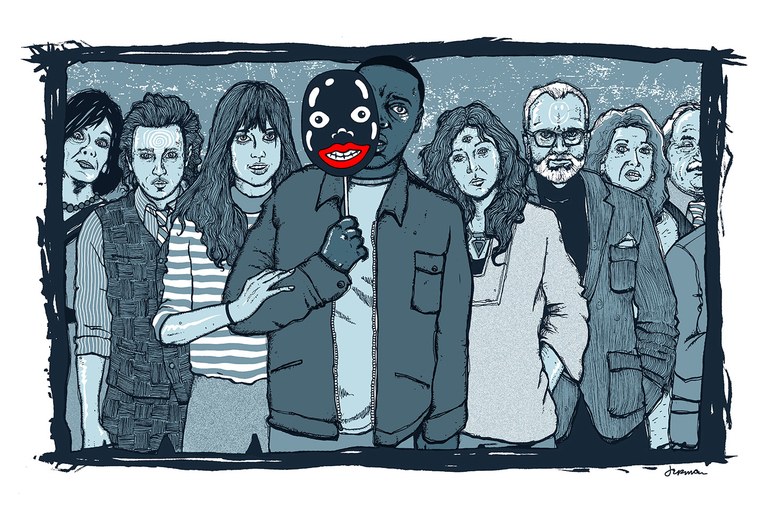As discussed on the home page of “Horror Tropes,” most horror movies have been created with the white imaginary and fear in mind. Horror movies have been asking what does an ideal white life look like, how can we interrupt it, and what are the white fears we can use to interrupt it. That mindset does not leave much room for people of color in horror movies apart from fodder for the violence.
Get Out flips this white focus on its heads in two ways.
First, the movie does not revolve around white fears. The movie focuses on what black people fear. What do white people fear? Demons, werewolves, ghosts, ax murderers, (black people) etc. What do black people fear? White people. Specifically, white people hurting them, killing them, enslaving them, and being powerless to defend themselves against any of that because the white people are using the system (police, the state, laws, etc) to control them. Peele focused on those fears and made them visible, showing that white supremacy and racism still exist and white people have a lot of power over black people in society.
Second, the movie focuses on the white fear of being perceived as racist. The Armitages, violent as they are towards black people, do not want to be perceived as racist. They try to act “normal” and the father, Dean, uses language like “man” to finish his sentences, that he thinks sounds black and would put Chris at ease before he takes away his life. Dean claims that he loves Obama and would have voted for him a third time, something which Rose also mentions to prove that her family isn’t racist. One of the clients claims that Tiger Woods is his favorite golfer and a great guy. A different client claims that being black is now cool. The blind photographer claims to not see or care for color, being colorblind. Rose dismisses Chris’ real fears of meetings her parents as silly because they obviously could not be racist at this age and time. All those actions are supposed to say, “Look at me, I am not racist! I love black people! Racism is dead!” But racism isn’t dead and Peele uses this denial and white fear of being called racist to make the audience aware of that fact. The colorblindness, the microaggressions, the fetishization, the state violence, the actual violence, are all signs that we don’t live in a post-racial society and we never will as long as differences create profit for the state and benefit those in power.
Inspiration for this post came from Zakiyyah Jackson and Treva Ellison. Jackson discusses the concept pf post-humanism, and so the white fear of racism, and colorblindness in “Animal: New directions in the theorization of race and posthumanism.” discusses carceral feminism and issues of the state and police in “The Strangeness of Progress.”

